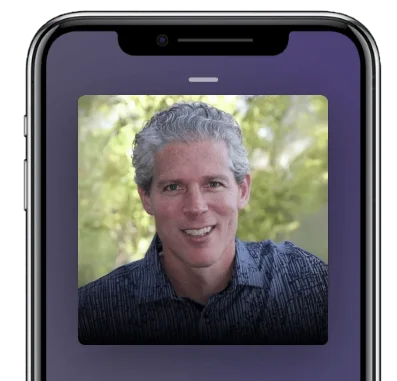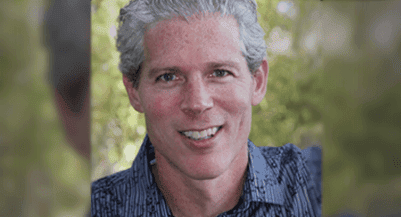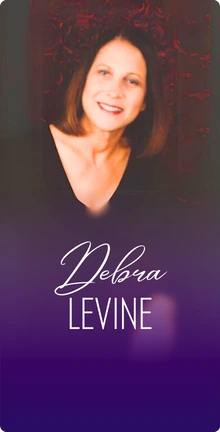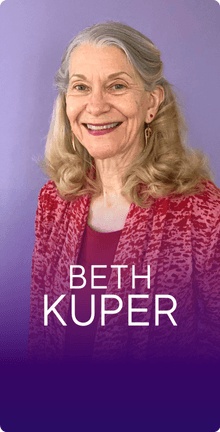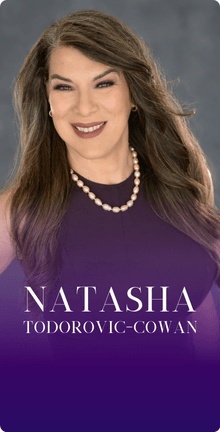In this Episode
- [00:44]Stephan introduces Ben Saltzman, an Enneagram expert, Fortune 500 leadership trainer, and coach to thought leaders, superior court judges, and change-makers.
- [05:02]Stephan and Ben dive into the basic premise of the enneagram.
- [09:49]Behavior and inclinations of Type One.
- [14:05]Behavior and inclinations of Type Two.
- [19:49]Stephan shares his insights on the transformation of Type Two.
- [25:11]Type Three people don’t know their authentic selves.
- [30:03]Behavior and inclinations of the transformed Type Four.
- [34:36]Behavior and inclinations of the transformed Type Five.
- [39:09]Behavior and inclinations of Type Seven.
- [44:29]Why Type Eight refers to their team as minions.
- [49:30]What you can do after taking the test and resources available on the website.
- [56:08]Visit Ben Saltzman’s website to figure out what my Enneagram type is. Check out the Transform Your Type for Relationship and Relationship Mastery programs. Then, follow him on LinkedIn to stay updated on his latest activities.
Ben, it’s so great to have you on the show.
It’s good to be here. Thanks for giving me the opportunity.
Well, first of all, let’s talk about the enneagram because that is such an important aspect to what you do. Many of our listeners probably are unaware of what it is and what power it wields, so let’s start there.
I always feel like on these podcasts I get to share a little bit of gold with the listeners, and it’s in the form of the enneagram. This is the enneagram symbol here behind me.
For our listener who doesn’t have the video going, why don’t you describe it for those folks?
It’s basically a circle with a nine-pointed object inside of it, and it represents nine different types. The types are the numbers around. If you imagine a clock that goes 1 through 12, these numbers go one, two, three, four, five, six, seven, eight, nine with nine at the top. The reason that there are lines that are connecting these numbers is that there are nine different personality types, and sometimes you move along those lines and take on aspects of the other personality types, not your core point, but you actually move around the symbol.
The power of the enneagram is that it is a very precise map of unconscious motivations—the why you do what you do that you are unaware of. This means why you sabotage relationships in ways that you’re unaware of, why you sabotage your success at work in ways that you’re unaware of, why you run away from possibility, from the promotion, the job, the big gig, or the big sale. How do we operate in ways that are unconscious that are limiting our success? It’s a big one.
The power of the Enneagram is that it is an exact map of unconscious motivations—the why you do what you do that you are unaware of. Share on XThis unconscious behavior reminds me a little bit of the PRINT assessment. It’s just an assessment, it’s a personality assessment. PRINT allows you to see your unconscious motivators and also your triggers. I had Debra Levine, the co-creator of PRINT on this podcast a while back. How does the enneagram show the unconscious nature of what our behaviors are, what motivates us, and all that?
I’m going to act out the types in a little bit so you’ll really get a deep dive. I’ll become the nine different personality types and act it out.
That’ll be fun.
You’ll get a real feel for the deep dive here. But part of what we find with a lot of the assessment tools is that they map behavior and some of the unconscious drives and motivators, but you’re kind of stamped as that type. You look at the Myers-Briggs, the DISC, and some of these other profiles and they say, well, you’re an XYZ and you’re doomed to be that forever.
The underlying principle for the enneagram is this is a defense mechanism, this is a false self. This is something that you’re doing, but it’s not the deeper expression of who you are. That there’s something that’s more authentic, that’s more real, that’s more powerful, that’s more connected, and we can do the work around your type. You can let go of a couple layers of your type and this more authentic, more connected, more powerful you can emerge, and people love that. People are into letting go of this stuff that’s been limiting them and coming out into the world.
That’s the basic premise of the enneagram. It comes out of Eastern philosophies instead of Western psychology. Eastern philosophy is like, we can transform here.

And it’s not only Eastern philosophy, but it’s also (dare I say) quantum physics because if you think about the double-slit experiment and how light is a wave as well as a particle—a particle photon—but not until it’s observed by the observer. And then it’s only a particle, the wave behavior of light disappears. You as the observer are essentially creating your reality, creating what happens in your world.
You are collapsing all the infinite possibilities, the wave of potentialities. I’m kind of paraphrasing Deepak Chopra here. You’re collapsing all that wave of potentiality down to one characterization, one version or variation of you. When you do a personality typing or you have a belief about yourself—it could be a false belief—you have collapsed all that infinite possibility down to one. I’m curious what your thoughts are on that.
I love it that we’re already going into quantum physics here. I think that when we have beliefs about ourselves, it puts us in our own box that we’ve created on our own. If you look behind me here, again, people who can’t see, I’ve got The Matrix behind me.
I’m a big fan. I love the movie, I love it.
I had a feeling. In The Matrix, they were plugged into a false reality. The plug goes into the back of their head, they’re hijacked by this false reality that they can’t see, taste, touch, or smell—a prison for their mind. You can think of the enneagram type in the same way that each type bends reality. It puts blinders on so we can only see certain things and we can’t see other things. You have blind spots that you can’t see.

If I’m an enneagram type six, my attention is pulled towards what are the dangers, what are the hazards, what’s going to get me, what’s unsafe in the world? The world that is unsafe shows up in an exaggerated way, clouds my experience, and triggers my amygdala. I get to be hyper responsive to anything that’s dangerous. Now this blinders means I can’t see what’s safe, the way that I can show up for myself, the people who are at my back who are here to support me.
I have this weird tweak of a warp on reality based on my type, and I come to believe it’s a dangerous world. Through quantum physics, I believe it’s a dangerous world, that’s what I create over and over and over again I experience a dangerous world.
I’m working on a book called A Friendly Universe. How we live in a friendly universe is really the crux of it because if we believe it to be unfriendly, we create that reality. So much chaos, so much uncertainty, so much destruction, so much evil, it just seeks us out or it just presents itself to us over and over and over again because that’s what we believe the universe dishes out.
Whereas a friendly universe doesn’t look anything like that. It’s inherently good, loving, life happens for us not just to us. Life happens by us, even better, right?
I firmly believe that each of these nine types skews reality and creates its own weird world. When we can take those blinders off and we can see reality as it is, it becomes a much friendlier universe.
Let’s go through each of those types and maybe you could act out each of those types for us as you said earlier and help us really fully experience what those blinders are like.
I’ll act them out. I’ll stop before the end and see if there are any questions for you asking me as the type, I’ll answer from inside the type.
Oh, great.
I’ll do the before transformation and after transformation versions of each of the types.
So you’re talking about there’s a shadow version and then there’s a fully realized empowered version?
Exactly. They’re on a continuum here and I’ll exaggerate the dysfunctional aspects before transformation, and then we’ll look at after transformation. After they do their inner work, what do they look like, what’s the difference?
As a type one, you want to get things done well. So you’re called a perfectionist.
Here we go. I am a type one on the enneagram, and as a type one, I want to get things done well. I am precise. I’m called a perfectionist. I have high standards for my own behavior and for other people’s behavior. I am constantly scanning my environment for what’s out of place, what’s wrong. I look at you and I think I don’t know if that shirt really matches your background there, Stephan, and there are some things behind you. I don’t know if this is so good here. My attention is always to what’s missing and what’s out of place.
If you’re in a relationship with me, whether it’s a working relationship or an intimate relationship, as soon as you start feeling criticized you know we’re tight. I’m in with you, I care about you because I’m telling you the real deal. You really do need to shift that or change this, that is a bad dress, or you didn’t say that right. People who are around me often feel criticized, talked down to, or I’m the moral authority.
I’ve got an internal judge and a critic that’s going on inside my voice all the time. This voice is saying, you’re stupid, you didn’t do that right, you need to do this. I’m overwhelmed by it. This means that I don’t take a lot of risks, I’m kind of rigid. In the business arena, my creativity is stifled. I’m kind of doing the right thing, whatever right is. Any questions for me as a type one?
So being a perfectionist, I’ve heard this before, is having such high standards that it’s equivalent to having no standards at all because you don’t get anything done.
Yes, I often don’t get anything done because I want to do it so perfectly. I redo the presentation, I stew about what I am going to say on the call. There’s just like this can’t get it done right and so things never launch, things never happen. It’s like my own worst enemy.
Perfect is the enemy of done.
Yes, exactly.
And is there a lot of rumination going on like stuff just going back and forth and back and forth and back and forth in your head like you’re just stewing on stuff?
The principle for the Enneagram is something you're doing, but it's not the deeper expression of who you are. So let go of a couple of layers of your type to a more authentic, more connected, and powerful you can emerge. Share on XParticularly I stew if somebody has done something to me. There’s resentment in here and there’s a grinding irritation. I can’t get rid of it.
Got it. Okay. Good.
So that’s a pre-transformation. Then we went through the transformation and now I am an enneagram type one after transformation. I’ve done my inner work, learned some relational skills. What I’ve discovered is that there’s more acceptance of me, my flaws, what’s going on inside here. There’s more acceptance of you. I’ve kind of loosened up. There’s more joy running through me. There’s more lightness in my being. People who are around me don’t feel so criticized, they actually feel supported.
My creativity has come more online because I’m not so worried about getting it right. I can break out of the box, and there’s a part of you that can enjoy being around me and with me. There’s just kind of more ease in my system. Can you get a feel for it here?
Yeah, it’s a lot lighter.
Yes, it’s a lot lighter. My friends tell me things like, I feel more relaxed around you. In the business world, people want to collaborate more with me because there’s just more ease and juice there.
But there’s still attention to detail and precision there. It’s just a more realized, more elevated version.
Yes, exactly. I’m not sloughing things off. People would never call me a slacker. I still get things done and I’m precise, I’m just much less rigid about it.
Great. All right. Well, nice to meet you type number one.
A type two on the enneagram is a good friend and loves to support other people.
Yes, thank you. Moving on to type number two now, which we call the helper. I’m a type two on the enneagram and something that I want to tell you is that I’m a good friend. I love to love. I love to support. I’m in support of other people. I am constantly going out of my way to create connections, and I’m attuned to what are your needs, what are your desires, what do you want. That means that I can’t see my own desires. I can’t see what’s needed over here, so my own agenda gets lost and I end up helping you and helping you and helping you.
I could almost become a different person to help you and to support your needs. When this gets cranked up into overdrive, I’m depleted. I’m like, I’ve helped so many people I’m exhausted. I get a nervous breakdown or I feel horrendous. I’m like, when is it my chance? How come you can’t help me? Where’s the coming back? The helping is supposed to be reciprocal. Don’t you get the game? I help you, I overhelp, and then you help me.
When that doesn’t happen, I start to get resentful, I start to get angry, I get burned out over time. There’s something inside me that’s like, how come you don’t value me? The truth is, I’m not valuing myself. Underneath all this, I think I have to sing for my supper. I think I have to earn attention or love by doing, and it is exhausting tracking everybody else’s needs and desires and not knowing my own. Any questions for me as a type two?
Yes. So you’ve heard the old adage put your own oxygen mask on first. Why don’t you heed that advice? Every plane ride you get that advice, why don’t you implement it?
That’s a nice theory, buddy, but when you don’t know where the oxygen mask is it doesn’t occur to you. It’s like, I don’t even know what that would look like. I can hold the intention of attending to my own needs first, but I don’t know what I want, I don’t know what I need. There’s a real blind spot there before the transformation. It’s like, I’m thirsty, and I get you a glass of water.
Right. Do you identify as a martyr?
Yes. I can be a martyr, a victim, a doormat. Sometimes people tell me things like I feel like I’m caught in your web and I owe you something but I don’t really know why. I didn’t ask for all your help.
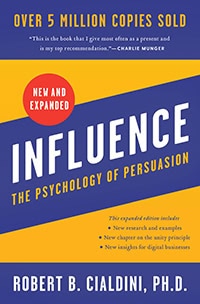
Because there’s a law of reciprocity. This was an interesting study written up in the book Influence by Robert Cialdini who was a guest on this podcast, a great episode. The Hare Krishnas would give flowers to people and people would go out of their way to not get the flower.
They would walk around the area. They’d go out of the square and cross the street or whatever to get away from the Hare Krishna giving the flower away so they didn’t have to take the flower. Because then there’s that law of reciprocity kicks in and then they’re like, okay, I guess I have to give you money. I don’t want to, but you just gave me a flower. That social pressure is extreme.
Yes. As an unevolved type two, I am those Hare Krishna people—giving things, expecting return. I don’t even know sometimes that there’s manipulation involved. When I first discovered my type and Ben Saltzman told me that I was manipulating people, I did not like hearing that.
You didn’t see it because it was a blind spot.
I was totally blind to it. When I discovered it, I was not pleased with myself, and that led to the transformation. Let’s do the transformation for type two.
Let’s do it.
I am transformed type two and what I’ve noticed is that my sense of self—self-value and self-worth—has gone up. I now know what my desires are, what my own needs are. I’m thirsty, I get me a glass of water. I take time out for me. I actually charge what I’m worth for my services. I respect my own time in relationships. Instead of making you lunch, dinner, breakfast, and want to give you a foot massage all the time, instead of the constant giving, I’m replenishing myself so that I can come fully loaded to the table.
It feels good over here. I’ve got my time back, I’ve got my income up, I’ve got my friends in place. People aren’t avoiding me because of that weird giving thing. People feel like, oh, I can be in a relationship and you can take care of yourself. That’s huge. It feels like my relationships are clean now. They’re not so messy. And I’ve learned to set boundaries, limits. I used to think of those as ugly things that would separate us like a boundary would be something that would create distance between us and it would almost send me into a panic before transformation.
Now, no, it’s not okay to treat me that way, or no, I don’t want to go to that dinner where you want to go. I can claim my truth and I’m still okay. The world’s not going to end, the relationship is not going to end.

This makes me think of Atlas and having the whole world on his shoulders. Somebody who’s type two unevolved probably feels that way. If I don’t do it, then who’s going to do it? I’m always rescuing, saving, and doing for others. There’s nothing left, I’m exhausted, and I’m going to collapse.
Exactly, you got it.
This was an interesting lesson I learned relating to the helper and trying to bring everybody else up the mountain. I had a session with Erik Luhrs who you may know from JVMM because that’s how we met. A really great guy. I didn’t know he was psychic. I just had a session with him and he started channeling and just sharing right off the bat. It was like, I’m getting this big like vision that I need to share with you this picture of a mountain and there are these lines going down the mountain only halfway down the mountain.
It’s like these lines represent you putting stakes in the mountain rock face hammering those in horizontally, laterally across the mountain trying to bring everybody up to where you are halfway up the mountain. That’s not how it’s supposed to work. You’re supposed to go up to the top of the mountain. You’re wasting all of your resources, time, energy, and focus getting everybody else up to where you’re at and also focusing on the middle of the mountain when all the action is up at the top of the mountain.
That resonated with me. That really struck a chord, and I knew that was something he had channeled. That came from a higher dimension, and I finally got it. Yes, I understood conceptually beforehand how I’m spread across too many different things, how I have way too many to-do’s in my to-do list, and so forth and so on. I read The One Thing book by Gary Keller and so forth. Got it all conceptually, but I wasn’t putting it into practice, not until I had that session with Erik.
By the way, in the episode where I interviewed Erik, I go into more detail about this whole thing. He goes more into his psychic abilities as well as business applicability because he’s a business coach and executive coach, and he’s phenomenal. Have you ever talked to Erik before?
No, I haven’t met him, but I’ve heard of him.
He’s fantastic. I recommend him. So anyway, listeners, definitely check out the Erik Luhrs episode. So now, let’s move on to type three.
A pre-transformation type three is someone who gets stuff done and wants to look good doing it.
Yes, type three. So I am now a pre-transformation type three, and something that I want you to know about me is I get stuff done, and I look good doing it. There’s a little bit of like check me out here. I get the best grades, I push for the top of the class, I push for the top of the economic spectrum. Any social group that I’m in, I’m looking for who’s the best here? What is the archetype that is the highest ideal and I can become that person, I can become that archetype. I can shapeshift and wear the right clothes, use the right language, use the right words to basically become that ideal.
There are people who say, well, who are you because it’s all an image. It’s like smoke and mirrors. And behind the scenes, I’m like, don’t look. It’s the Wizard of Oz kind of feeling. Don’t look at the man behind the curtain, just pay attention to the image, to what I’m presenting. I’m going and I’m going. Because I really value being seen as successful and achieving, the pace of my life is intense. I’m going, I’m pushing, I’m hard driving. Sometimes I don’t feed my body, sometimes I don’t worry about any of my emotional needs or whatever. I’m just like, do it, make it happen.
The American ideal—success by driving, that is my motto. What this means is I tend to burn out. I go so far that I hit a wall and then my world falls apart. That’s when I started getting into personal development is when I had a nervous breakdown, I got cancer, and just all the doing and not paying attention to the being was hard for me. My spiritual development really went into higher gear when I broke down.
Now, when the people that I care about are around me, sometimes they can’t feel who I am. They’re like, you’re this way for this group, you’re this way for this group. You’re always running around. I never get to be with you. I feel like I’m tracking a ghost because you’re always on the move because you’re doing the next thing and the next thing and the next thing. It’s pretty hard for me to slow down, smell the roses, and be with life. Any questions for me as a pre-transformation three?
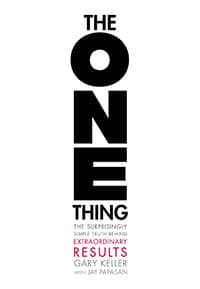
Do you know your authentic self?
That word doesn’t even make any sense to me. All I know is I show you this, and this looks good. From that angle I look good, okay, I’ll show you that angle of me.
This is the good side of my face for taking photos.
Yes, I am constantly attuned to that. It’s like on the edge of my consciousness that I’m being deceptive.
So you’re not totally aware it’s not in your prefrontal cortex that you’re wearing different masks all the time.
Right. I’m just showing you what you need to see.
And part of wearing these masks is to fit the part with all the trappings of success for that particular part that you’re playing. Having the Rolex watch, the right kind of car, and being in the right kind of neighborhood, the right kind of school district. All that sort of stuff is part of the equation for you, is that right?
Exactly. It’s all about how I’m perceived and am I achieving.
So The Millionaire Next Door book would be a fantastic book for the pre-transformation type three then. Are you familiar with that book?
Yes.
A great, great book. I read it several decades ago.
All right, I think I should transform now, huh?
Let’s do it.
Okay. I am a transformed type three and what I have discovered through that inner journey is that there is an authentic self here. That there is a part of me that isn’t all about performance but that I can actually slow down and be with people, and I enjoy them more. That authentic me I had to go find it, I had to slow down, I had to find my emotional body.
There were a lot of tears that were shed as I was with all the stuff that I had shoved away before. There’s a way that I am in the world that other people can feel me more now and I know me more now, so I’m not so panicked about going, racing, doing, and achieving. It’s like I slowed down. I like me more and other people like me more. You get a feel for it?
Got it. Okay.
Let’s do four, huh?
Yup.
Enneagram type four pre-transformation is the romantic.
Enneagram type four pre-transformation. I am the romantic. The tragic romantic sometimes I’m called. I’m now in my heart center in a big way and I get exaggerated emotions. I do high highs and low lows. There’s the part of me that feels elation and the joy of life, and I can get into depression, melancholy, and the angst of life.
Underneath, I’ve got this belief that there’s something broken inside me, some fundamental flaw and I’ve been left. When anybody turns their back on me, I feel rejected. Anybody looks at me weird, oh, what are you seeing inside of me? Often I feel like an alien. The rest of you kind of connect and are accepting of each other, but I’m on the outside. I’m dark. I was goth. I had black fingernails, dark clothing, and those kinds of things.
I have a huge flair for creativity and my emotion means that I’m a great actor and actress. A lot of my fellow fours are in the movies then they really feel into the characters and what’s going on for them. But there is a tragic sense to it. There is like I’m untouchable, unlovable.
Unreachable?
Unreachable, yet desperate for you to see me, like so wanting to be seen and validated. I don’t know if you get too close you’re going to see the flaw, so I pull back, but I want to be connected. There’s this push-pull in relationship. Any questions for me as a pre-transformation type four?
When we have beliefs about ourselves, it puts us into a box that we've created on our own. Share on XDoes it feel like emotional distancing that you’re putting out there, or does it feel like just pure rejection by others?
It feels from over here that I’m rejected and that you don’t really care.
Okay, got it.
That I’m on the outside. Can I transform, please?
Yes.
Beautiful. I am a transformed type four and the world is lighter now. I did my inner emotional and spiritual work. I learned how to connect with people. I now feel more valuable. I feel like I matter more. I have this sense of inner wholeness. What this means in a relationship is that I can meet you, that I can feel worthy of your time, your energy, your care, your love. In the business world, I can charge more for my services because my sense of I’m okay in the world and I’m not rejected is a lot higher.
When I feel like I’m more whole and I’m not more rejected and rejectable, I can create more connections, I can open. All those creative gifts that I’ve been hiding in the closet can come out. I’m way more expressed now. I’m doing poetry, I’m painting, I’m bringing my gifts out to the world, and it is the world that receives me because I feel worthy to be received.
Wonderful. Great. Let’s go to type five.
Pre-transformation enneagram type five thinks through life and the world.
All right. Enneagram type five. Now we’re getting up into the head types—five, six, and seven, all based up in the head. I’m a pre-transformation enneagram type five. I think through life. I think through the world. Think of Spock. Is it logical? Can I be understood? Because I’m not connected to the heart and the body, I’m like a walking head on a stick. People relate to me as a brain, and I can feel intellectually superior and a little bit put off by those of you who have all those messy emotions, are crying all the time, and want things from me. I’m kind of reclusive. I’m a little bit overwhelmed by humans with all of your needs, emotions, desires, and what’s going on out there. I’m kind of like, blah, you want too much from me.
People experience me as standoffish, as removed, as intellectually superior, as disconnected from life. Frankly, a lot of the time, I’d rather be at my home studying or reading than forced to be around groups of people all the time where I feel a little bit socially inept. I remember once trying to be social with a woman and I said, well, that’s a really nice dress. Did you make it yourself? She was offended. I had no idea why. But it’s that kind of thing over and over where I stumble socially and put my foot in my mouth.
That actually sounds like a neg, which is one of the tactics that pickup artists use. It’s a backhanded compliment. They use it on like the supermodels who think that they’re untouchable and it puts them in their place a little bit or puts them a little off-kilter. I never liked that idea of using a neg as a way to pick up a woman. That’s what came to my mind when you were talking about that. That’s not a great place to be. Again, that seems pretty emotionally unavailable and—
Dry.
Just unapproachable. But it’s different from the type four romantic because they are less wearing their heart on their sleeve in a way. It’s pretty obvious if you see someone in a goth outfit that hey, I’m letting the world know I’m not ashamed of this. This is my worldview. Whereas a type five seems like they try to hide a bit more. Is that right?
Yes, I would say so. The fives are usually more reluctant to share themselves, their information, their energy, their time, and definitely don’t have their emotions on their sleeves. Whereas the fours, a lot more emotion available—emotional availability, a lot more self-expression. They’re like, I’ve got to express or I’m going to die is going on inside the fours.
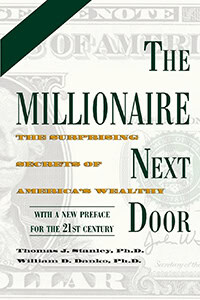
Okay, got it. All right. Let’s transform type five.
Okay, transform type five. I go through the transformational journey, and I’ve dropped from the head, into the heart, and into the body—a huge transformation. I’ve discovered that as I dropped in here, I actually like people and I like being in a relationship with them. It’s not that I’ve become a crazy extrovert and want to be around people all the time, but there is more availability inside me.
I’m more open to share, I’m more open to be with people, I’m more interested in them. I’m not so socially inadept now. I learned some social skills. This means that people feel me more and can relate to me more. That means that my social circle has increased, and I’ve got more friends. It means that I’ve learned how to play the game at work a little bit more, so I got a promotion and people relate to me as a leader at work. Those are pretty big shifts for me.
Awesome. Definitely to be more relatable and more in your body is something we should all aspire towards.
Yeah, this has been a beautiful journey for me.
Awesome. Let’s go to type six.
All right. Pre-transformation type six. I am what they call the skeptic or the loyal skeptic here as a type six. We talked a little about this earlier in the podcast, I live in a world where there’s a lot of dangers and hazards. Where I’m kind of looking for what’s the hidden agenda? Are you out to get me, what are you going to do? Particularly if you’re an authority figure, I don’t trust you, I don’t think that you’re looking out for my best interest. When I’m in a relationship, I’m always looking for evidence that you’re going to leave me or that you don’t care about me because that’s some of my worst fears.
Because I’m looking for evidence of it, I remember I bumped into an ex-girlfriend a couple of years after we broke up. She says, why did you break up with me? I was like, well, I didn’t break up with you, you broke up with me. She said, you pushed me away. You didn’t respond to me. I had seen evidence that was letting me know that she was distancing from me because I was looking for evidence of her leaving me. I saw it, but she didn’t leave me. I actually created the thing that I was the most afraid of. I distanced from her and then the relationship was over.
Wow. Fear is false evidence appearing real.
Pre-transformation type six is what is called the skeptic or the loyal skeptic.
Yes, exactly. It’s all around me. False evidence appearing real is around me all the time, so it’s gotten me living a smaller life, not taking many risks, doing what I have to do to stay safe. Sometimes I can feel a little paranoid before transformation. It’s a tough place to be.
The world is a scary place. All right, so let’s transform.
All right. So I go through my transformational journey. After transformation, I have found my inner authority, my inner sense of I’m okay. The world appears safer. I’ve discovered that I can show up for me, and that’s a big part of my transformation. I can rely on myself here to be solid, to be true, to be truthful, to be confident. That means that I can now bring myself out to a world that supports me in ways that I had no idea were available. It’s become a friendlier world.
Now, it’s not that my mind doesn’t go towards the future and what might go wrong. I do a lot of worst-case scenarios imagining. I still do some of that, I just do it less, and I don’t believe it as much. I’m just not in that world. If you’re watching, you might be going, well, which one of these nine types am I?
We’ve got an online test. You can take the online test. Because sometimes, when people hear these types, they’re I’m this one, no, I’m that one, no, I’m this one. They go through that, so we do have an online test. You can go to touchedandtransformed.com too. You can get it on the website. That’s type six. Let’s go to type seven?
Yup, let’s go to type seven.
There’s a lot of comedians that are type sevens.
All right, type seven. As a seven, something that I want you to know is I do joy really well. I do likeness and humor really well. There’s a lot of comedians that are type sevens. I’ve got this belief that’s down there, it’s unconscious. That if I am forced to experience pain or suffering, I’m going to die. That’s the core belief. Each type has a core belief at the bottom. It’s really unconscious and pushing things around. For the seven, if I experience pain and suffering and I’m forced to, I’m going to die.
This means that I’m moving towards lightness, I’m keeping my options open. I’m bouncing from one relationship to the next, from one job to the next sometimes. Or geographically, I’m moving from one country to the next. It’s always on to the next, on to the next, on to the next. People can experience me as a little surface level, there’s a little bit like I’m lacking depth, a little bit like the dilettante that dabbles in all these things and never gets to mastery because my pace is fast. There’s always another shiny object—anything not to feel limited.
I didn’t do my taxes for 10 years because it was so boring, it was so limiting, it was like ugh. Just don’t force me to sit down and do this thing, it just feels horrendous. It also means that in jobs, I don’t get the payoff because I don’t go into depth and really master whatever my career is, I bounce from one career to the next. I don’t get paid what I’m worth, I feel like I’m just not there. Any questions for me as a pre-transformation seven?
So you’re not doing the hard yards?
I’m not doing the hard yards.
All right. Is Robin Williams somebody who would have been a type seven?
Yes, I think Robin Williams is a seven.
Because he battled depression and had a really hard time with his inner world.
Yeah, and you can feel the agile mind in Robin Williams. For the sevens, we’ve got that agile quick mind, quick thinking. A lot of humor.

Okay, let’s transform.
So I’m a transformed type seven, and as I transformed, I found my ground. I found my inner sense of I’m okay even if I’m limited, that was huge. So I learned how to commit. I committed and I got married, that’s a commitment. I had a kid—a huge commitment. Now I’m tied to that kid for the rest of that kid’s life. Before I did my inner work, there was no way I was going there because inside of our psyche, inside of our soul, we know as we commit and to another human as we get more connected, at some point, there’s going to be pain.
They’re going to get hurt, they’re going to get injured, somebody’s going to die—something might happen. I have developed the capacity to be with that pain, to be with that sadness, to be with suffering. It means that I can be with my own, it means I can be with yours. I coach and so people can do more depth work with me. People tell me things like, man, you’ve got more ground, you’ve got more depth. I feel like I can be held by you in a way that they couldn’t before.
A space for somebody.
Yes, exactly. My capacity to hold space for other people is broad and deep now.
Wonderful. All right, let’s go to type eight.
Okay. Type eight on the enneagram. I’m the boss, I am the controller. I am the one that makes things happen as an eight. I’m big, people can experience me as overly aggressive. I don’t really care about that very much. I’m kind of pushing the world around and you better listen up because we got stuff to do here, and the rest of you are playing at half speed. I’m like, wake up, people. We got work to do, we got a planet to save, we got things to do.
There’s a drive, there’s an intensity inside of me as a type eight, and most of the world is going, whoa, you’re too much. You’re too big, you’re too angry. I’m like, I’m just being me. Get a backbone, come on. It’s like that kind of experience for me, and the world often feels small like the rest of you are kind of ants in my playground and chess pieces that I move around my board. It can be lonely for me as an eight feeling like I’m the only one who has this much belief, intensity, drive, and focus.
Type eight on the enneagram is a controller.
I’m often overwhelming to other people and I don’t know how intense I am. There’s no internal Geiger counter for my intensity. Sometimes when I go, oh, sorry because I do have a big heart, but it’s on the inside. Sometimes they refer to me as a burnt marshmallow, kind of crusty and aggressive on the outside, and gooey, warm, and big-hearted on the inside.
Would you refer to your team as your minions?
Yes, that has happened in the past. There have been times when I’ve been driving to the top of the hill, go, come on. We’re going to make it. I turned back and there were all these dead bodies behind me. I didn’t mean to, oops, sorry. But sometimes they can feel like I just don’t care about them. It’s just all about accomplishing and power.
HR really is about managing human assets.
Yes. People get reduced to assets sometimes unless they’re in my inner circle. When you’re in my inner circle, I will go to the mat for you. I will kill for you. There’s a mob boss kind of mentality here of, you mess with my people, I take you out. I know that feeling inside of me like I’m the protector.
All right. Well, let’s transform.
All right. Transform type eight. I do my inner work, and that marshmallow of the gooey inside and the crusty outside, they’ve melded more. I can now attune to the people in my life. I’ve opened to my own vulnerability and to others. I’ve gone through a transformational journey, and I’m not as overwhelming. I’m not as scary to people. I can see when their hair is like getting blown back from my voice and I actually say, oh, there’s a human there. I relate to you as another human, as a soul and a body, not as something that gets objectified, pisses me off, or that I have to move around. I find that people stay in my life more, I have more connection, and people are not as afraid like that.
A soul and a body, I like that. You can see the spark of God in everyone.
The enneagram type puts blinders on so we can only see certain things, and we can't see other things. So, you have blind spots that you can't see. Share on XExactly, yeah. Your humanity and your divinity are more available to me.
Amazing, all right. Let’s go to type nine.
All right. Up to the very top of the enneagram. If you all remember, the type nine is at the top of the symbol. From this vantage point at the top, I see everyone else. I see what’s going on for them and I lose myself, I lose who I am in everyone else. I can take on their personality, their agenda, their characteristics. There’s something inside of me that feels fear about going after what I want with too much drive, with too much focus.
I tend to be conflict-avoidant. I don’t like anger. There’s something inside of me that really just, can’t we all just go along to get along? Let’s just play nice together, come on. Because I am afraid of creating distance between me and others, my energy just merges with other people. When it’s time for me to take action, when it was time for me to make that call to get the promotion to get the big job, all of a sudden polishing the doorknob felt really important. Picking up my room and all the clothes in my room just drew me.
My attention is drawn towards inessentials when it’s time for me to take action on my own behalf, like a low sense of self-worth. I don’t charge what I’m worth, I don’t really go after what my thing is, my desires are. I don’t want to ruffle feathers.
Okay, let’s transform.
As a transformed nine, I have discovered that I have needs and desires and that I matter. I’m not invisible anymore.
All right. As a transformed nine, I have discovered that I have needs and desires and that I matter. I’m not invisible anymore. I can speak my truth. I can go after the thing that I want. I charge more for my services and guess what, people pay them. They want to work with me. I had no idea how many people actually wanted to work with me. Now that I have an increased sense of self-value, they value me in a higher way, and that’s nice for me. That’s what I really want in the world. I want to be seen. I want to be expressed. I want to have something in my soul that I matter. It’s like I found my inner authority and the world opened at my feet.
Amazing, all right. Let’s say that our listener takes the online test and they have identified that they’re a type five or whatever, but that’s their primary. Then they have a secondary or that’s the only type that they’re assigned? Walk us briefly through this process. How long does this test take? What’s the cost? What do you get as the output?
So typically what happens is you take the test, five minutes. It’s a free test, and then you get dropped onto a page with a video about your type. You get a deeper understanding of what your type is and what’s going on there. For some people, that’s enough. Just having some self-awareness is enough for them. But for a lot of us, there’s this, what do I do about that? How do I change, and how do I transform?
For those of you who are into that, we have online programs where you get to go through, Transform Your Type is the online program. We have a six-month program which is called Relational Mastery, and in that program, it’s the deep dive. You’re learning relational skills, and you’re going through your own transformational journey with a cohort of 14 people. You’re deep-diving into the evolution of your spirit, the evolution of your soul, and how do I form deeper connected relationships with other people.
So you’ve identified through this process, taking this online training, what your core beliefs are as that type and how to transform those core beliefs into things that are more empowering and helpful?
What do I do about that? How do I change, and how do I transform?
Exactly. If you look from the spiritual perspective, you can think of it like that false self is starting to let go and that authentic self, that higher self, that divine self is starting to come through. We find that the way that they actually show up in the world changes. That they show up with more inner authority, more connection, more presence, more personal power. There are these qualities that are wanting to come through, and as your type starts to let go, they can. That’s part of the transformation.
That’s why we call this spiritual transformation because it’s not just ideas and beliefs, it’s like a full experience of shift.
In India, I learned that the divine is not a belief but an experience. I got to experience what that meant because I was agnostic and then I got a Diksha, a oneness blessing—a monk touched me on the head and it was like an LSD trip of some sort. I was forever changed from that experience.
Exactly. That’s what we became really interested in is how do we help people to get that forever changed experience. It’s really been 20 years of us finding what are the best methods. We do shadow work, we use precise self-observation practices, we use self-inquiry. There’s a lot of practices that we’ve rolled into our programs so that we can have that forever changed, opened to new spaces, experience for people.
Amazing. If somebody wanted to take a transformation journey on their own, is there a book or a resource that you would recommend? Was there something perhaps that was particularly powerful for you? A book, a mentor, a training, or something that launched you on your journey?
People usually discover themselves in a deeper way when they watch an enneagram panel. So a panel is three or four people all of the same type, and a facilitator is taking that group into self-exploration. Let’s say they’re all type sixes. That type six is revealed on this panel in huge depth. When I run panels or other facilitators run panels, we’re intentionally pulling them down into their core fears, the stuff that agitates their soul, and you can feel them starting to twitch.
Often to me, it feels like tuning forks. As one of them starts to twitch, it lights the other one up, which lights the other one up. So everybody is twitching with that—for the sixes—core fears like ahh. If you’re a six, you get activated. That tuning fork impacts you. And as you see your particular panel, and you can check these out on YouTube. There are free panels. We’ve got a good set of panels on our website. But watching panels is by far the best way to discover your type in-depth and to start that journey of transformation. It’ll get you going.
I firmly believe that each of these nine types skews reality and creates its weird world. However, when we can take those blinders off and see reality as it is, it becomes a much friendlier universe. Share on XBeautiful. Remind us again what is the name of the program that you offer that helps people through that transformation process, and also the location of the online test.
The online program is called Transform Your Type for Relationships, that’s the online version. The deeper dive, the six-month program is called Relational Mastery, that’s if you really want to go into the deep waters with us. The test can be found at touchedandtransformed.com, and if you look at the top and it says free test, that’s where you want to go.
Awesome. That’s another way to get to it if you’re driving or working out at the gym. Thank you so much, Ben. This was fabulous and insightful. I loved the way that you helped us to really understand the nine types of the enneagram and relate to them as real people—both the version before transformation and after, so thank you for that.
My pleasure. Thank you for your questions. Your engagement helps me bring the types alive for people.
Wonderful. All right. You, listener, if you relate to any of what you’ve heard in this episode, please dig deeper. Take the test, figure out what your type is, and work on it to be the best, most evolved, and elevated version of yourself as possible. We’ll catch you in the next episode. I’m your host, Stephan Spencer, signing off.

